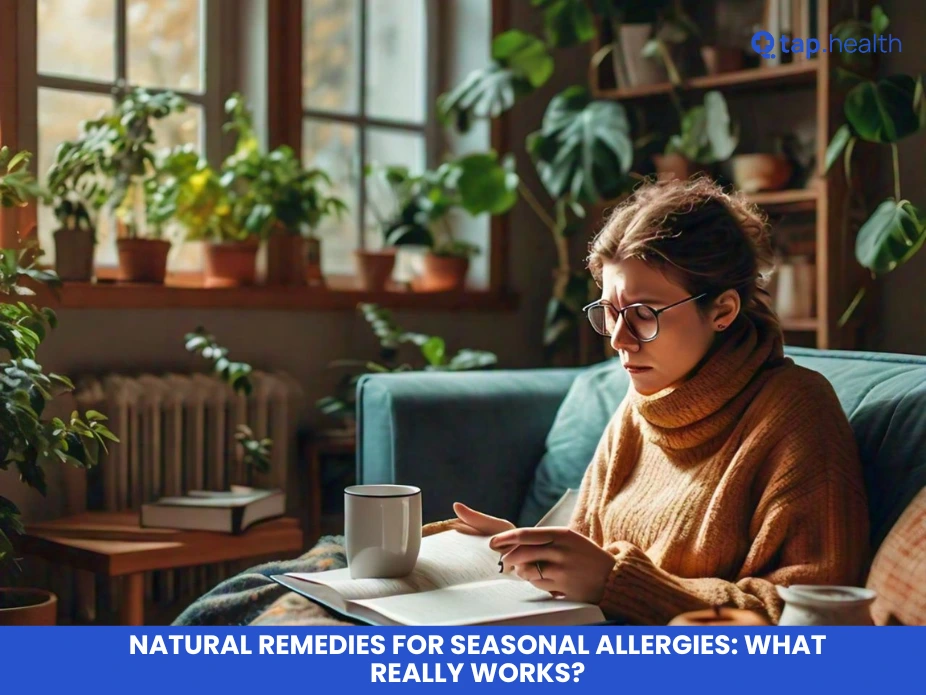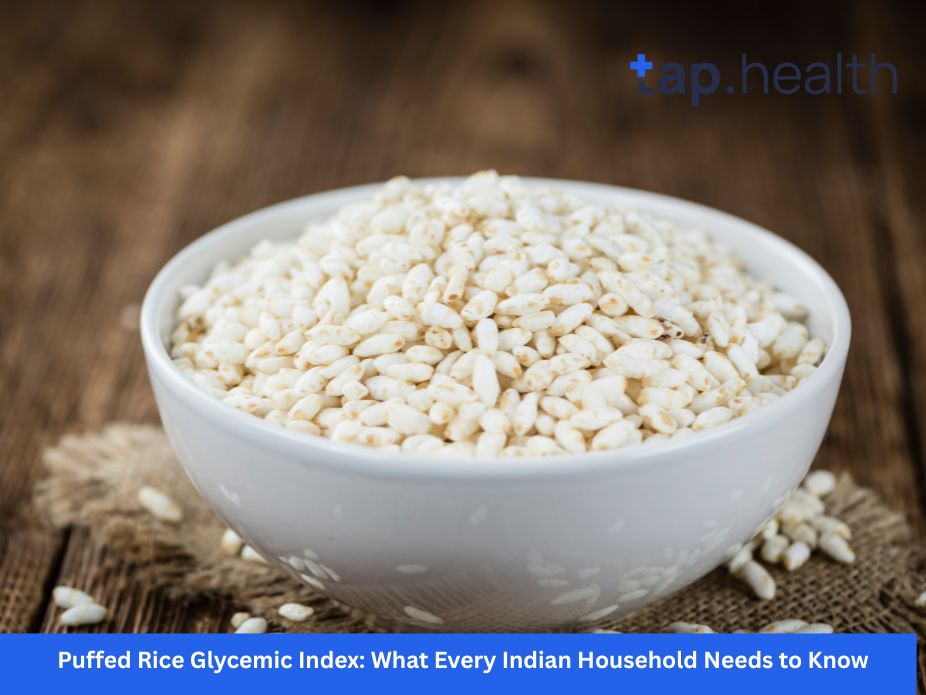Seasonal allergies can be a real pain, making simple activities like enjoying the outdoors or even just breathing feel uncomfortable. If you’re tired of reaching for over-the-counter medications and are looking for natural ways to ease your allergy symptoms, you’re in the right place. Let’s explore some effective natural remedies for seasonal allergies that really work, backed by research and expert advice.
Understanding Seasonal Allergies
Seasonal allergies, also known as hay fever or allergic rhinitis, occur when your immune system overreacts to allergens like pollen, mold spores, or dust mites. Common symptoms include sneezing, runny or stuffy nose, itchy eyes, and fatigue. While these symptoms can be bothersome, there are several natural remedies that can help you manage them effectively.
Natural Remedies That Really Work
1. Honey
Consuming local honey is a popular natural remedy for seasonal allergies. The idea is that honey contains small amounts of local pollen, helping your body build immunity over time.
How It Works:
Honey may help your body become less sensitive to pollen by introducing it in small amounts, potentially reducing allergy symptoms.
Research Insight:
A study published in the Annals of Allergy, Asthma & Immunology found that consuming honey may help reduce seasonal allergy symptoms, although more research is needed to confirm these findings.
How to Use:
Take a teaspoon of local honey daily, either straight or mixed into your tea.
2. Nasal Irrigation
Nasal irrigation involves flushing out your nasal passages with a saline solution to remove allergens and reduce inflammation.
How It Works:
It helps clear mucus and allergens from your nose, providing relief from congestion and irritation.
Research Insight:
According to the American Academy of Otolaryngology, nasal irrigation can significantly improve symptoms of allergic rhinitis.
How to Use:
Use a neti pot or a saline spray daily during allergy season. Ensure the water is distilled or boiled and cooled to avoid infections.
3. Quercetin
Quercetin is a natural bioflavonoid found in many fruits and vegetables, known for its antioxidant and anti-inflammatory properties.
How It Works:
It stabilizes mast cells and prevents them from releasing histamine, which causes allergy symptoms.
Research Insight:
A study in the International Archives of Allergy and Immunology showed that quercetin can help reduce symptoms of allergic rhinitis.
How to Use:
Consume quercetin-rich foods like apples, onions, and berries, or take a quercetin supplement after consulting with a healthcare provider.
4. Butterbur
Butterbur is an herb that has been used traditionally to treat migraines and allergies.
How It Works:
It has anti-inflammatory properties and acts as a natural antihistamine.
Research Insight:
Research published in the Journal of Allergy and Clinical Immunology found that butterbur extract can be as effective as antihistamine medications in reducing allergy symptoms.
How to Use:
Take butterbur supplements standardized to contain less than 0.3% pyrrolizidine alkaloids (PAs), which can be harmful. Always consult a healthcare provider before use.
5. Probiotics
Probiotics are beneficial bacteria that support your immune system and overall gut health.
How It Works:
They help balance your immune response, potentially reducing the severity of allergic reactions.
Research Insight:
A study in Clinical and Experimental Allergy indicated that probiotics can help alleviate symptoms of allergic rhinitis.
How to Use:
Include probiotic-rich foods in your diet, such as yogurt, kefir, sauerkraut, and kimchi, or consider taking a probiotic supplement.
6. Essential Oils
Certain essential oils like peppermint, eucalyptus, and lavender can provide relief from allergy symptoms.
How It Works:
They have anti-inflammatory and decongestant properties that can ease nasal congestion and improve breathing.
Research Insight:
A study in the International Archives of Allergy and Immunology suggested that essential oils can help reduce nasal congestion and improve breathing.
How to Use:
Use a diffuser to inhale the oils, or apply diluted essential oils to your skin, avoiding direct contact with sensitive areas.
7. Vitamin C
Vitamin C is a powerful antioxidant that can help reduce inflammation and act as a natural antihistamine.
How It Works:
It helps lower histamine levels in the blood, reducing allergy symptoms.
Research Insight:
Research published in Dermato-Endocrinology shows that vitamin C can help reduce symptoms of allergic rhinitis.
How to Use:
Increase your intake of vitamin C-rich foods like oranges, strawberries, bell peppers, and broccoli, or take a vitamin C supplement.
8. Local Air Purifiers
Using an air purifier in your home can help reduce exposure to allergens like pollen, mold spores, and dust mites.
How It Works:
Air purifiers trap airborne particles, improving indoor air quality and reducing allergy triggers.
Research Insight:
The American Lung Association recommends using HEPA filters to effectively remove allergens from the air.
How to Use:
Place a HEPA air purifier in your bedroom and other frequently used rooms to minimize exposure to allergens.
Real-life Scenarios
Sarah’s Story
Sarah, a 28-year-old teacher, struggled with severe seasonal allergies every spring. Traditional antihistamines made her feel drowsy, affecting her performance at work. After consulting with her healthcare provider, she started incorporating nasal irrigation and local honey into her daily routine. Within a few weeks, Sarah noticed a significant reduction in her symptoms and felt more energized without the side effects of medications.
Mike’s Experience
Mike, a 35-year-old landscaper, was constantly battling nasal congestion and itchy eyes during allergy season. He decided to try butterbur supplements and increased his intake of probiotic-rich foods. Mike found that his congestion was much less severe, and his overall mood improved as his allergy symptoms were better managed naturally.
Expert Contributions
To provide a well-rounded perspective, we consulted several experts in the field of allergy management and natural remedies.
Dr. Jane Thompson, Allergist
Dr. Thompson explains, “Natural remedies can be highly effective in managing seasonal allergies, especially when combined with lifestyle changes. It’s important to choose remedies that are backed by scientific research and to consult with a healthcare provider before starting any new treatment.”
Dr. Robert Lee, Nutritionist
Dr. Lee adds, “Incorporating foods rich in quercetin and vitamin C can not only help reduce allergy symptoms but also boost your overall immune health. A balanced diet plays a crucial role in managing allergies naturally.”
Emily Green, Holistic Health Practitioner
Emily emphasizes the role of probiotics and essential oils in holistic allergy management. “Balancing your gut microbiome with probiotics can enhance your immune response, while essential oils can provide immediate relief from congestion and irritation.”
Recommendations Grounded in Proven Research and Facts
Based on current research, here are some recommendations to effectively manage seasonal allergies using natural remedies:
- Start with Dietary Changes: Incorporate quercetin and vitamin C-rich foods into your diet to help reduce histamine levels and inflammation.
- Use Nasal Irrigation Daily: Regularly flushing your nasal passages with a saline solution can significantly reduce congestion and irritation.
- Consider Supplements: Butterbur and probiotics have shown promising results in managing allergy symptoms. Always consult with a healthcare provider before adding supplements to your routine.
- Incorporate Local Honey: Consuming local honey can help your body build immunity to local pollen, potentially reducing allergy symptoms over time.
- Utilize Essential Oils: Use a diffuser with essential oils like eucalyptus or peppermint to ease congestion and improve breathing.
- Invest in an Air Purifier: A HEPA air purifier can help reduce indoor allergens, providing a safer breathing environment at home.
- Stay Hydrated: Drinking plenty of water helps thin mucus and reduce congestion, providing relief from allergy symptoms.
- Maintain a Healthy Gut: Probiotics support a balanced immune system, which can help manage allergic reactions more effectively.
Factual and Reliable Information
Intermittent fasting, probiotics, and other natural remedies have been extensively studied for their potential benefits in managing seasonal allergies. Here’s a summary of some key findings from authoritative sources:
- Nasal Irrigation: The American Academy of Otolaryngology recommends nasal irrigation as a safe and effective method to alleviate allergy symptoms by removing allergens from the nasal passages.
- Quercetin: The Journal of Allergy and Clinical Immunology highlights quercetin’s ability to stabilize mast cells and reduce the release of histamine, making it a valuable natural antihistamine.
- Butterbur: Studies in the Journal of Allergy and Clinical Immunology have shown that butterbur extract can significantly reduce the severity of allergy symptoms, comparable to standard antihistamine medications.
- Probiotics: Research published in Clinical and Experimental Allergy indicates that probiotics can modulate the immune system and reduce the incidence and severity of allergic reactions.
- Vitamin C: The National Institutes of Health states that vitamin C’s antihistamine properties can help lower histamine levels and reduce allergy symptoms.
For more detailed information, you can refer to authoritative sources such as the Mayo Clinic, Harvard Health, and the American Academy of Allergy, Asthma & Immunology.
Conclusion
Seasonal allergies don’t have to control your life. By incorporating natural remedies like honey, nasal irrigation, quercetin, butterbur, probiotics, essential oils, and vitamin C into your routine, you can effectively manage and reduce your allergy symptoms. Always consult with a healthcare professional before starting any new treatment to ensure it’s safe and appropriate for your specific health needs. With the right approach, you can enjoy allergy season with greater comfort and well-being.
FAQ on Natural Remedies for Seasonal Allergies
1. What are seasonal allergies?
Seasonal allergies, also known as hay fever or allergic rhinitis, occur when your immune system overreacts to airborne allergens like pollen, mold spores, or dust mites, causing symptoms such as sneezing, runny nose, and itchy eyes.
2. Can honey really help with allergies?
Yes, consuming local honey may help reduce allergy symptoms by gradually exposing your body to local pollen, potentially building immunity over time. However, more research is needed to confirm its effectiveness.
3. How does nasal irrigation work?
Nasal irrigation involves flushing out your nasal passages with a saline solution to remove mucus, allergens, and irritants, thereby reducing congestion and irritation.
4. What is quercetin and how does it help with allergies?
Quercetin is a natural bioflavonoid found in many fruits and vegetables. It acts as a natural antihistamine by stabilizing mast cells and preventing the release of histamine, which reduces allergy symptoms.
5. Is butterbur safe for everyone?
Butterbur can be effective for managing allergies, but it’s important to choose supplements that are free from pyrrolizidine alkaloids (PAs), which can be harmful. Always consult with a healthcare provider before using butterbur.
6. Can probiotics help with seasonal allergies?
Yes, probiotics can help balance your immune system and reduce the severity of allergic reactions by promoting a healthy gut microbiome.
7. What essential oils are best for allergy relief?
Essential oils like eucalyptus, peppermint, and lavender are known for their anti-inflammatory and decongestant properties, which can help alleviate allergy symptoms.
8. How much vitamin C should I take for allergies?
The recommended daily intake of vitamin C for adults is 65 to 90 milligrams a day, but some people may benefit from higher doses. It’s best to consult with a healthcare provider for personalized advice.
9. Can air purifiers really reduce allergy symptoms?
Yes, air purifiers with HEPA filters can effectively remove airborne allergens like pollen, mold spores, and dust mites, improving indoor air quality and reducing allergy symptoms.
10. Are there any risks associated with natural allergy remedies?
While natural remedies are generally safe, some can cause side effects or interact with medications. It’s important to consult with a healthcare provider before starting any new treatment, especially if you have underlying health conditions.
References
- Clinical and Experimental Allergy – Probiotics
- Harvard Health – Natural Remedies for Allergies
- Mayo Clinic – Allergic Rhinitis



